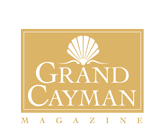Over the last 40 years, there are few countries that have enjoyed the economic success of the Cayman Islands. Cayman has advanced from a low-income economy, based on reaping the benefits of limited land and the seemingly limitless bounty of the sea, to a high-income, global destination for tourism and international finance.
Cayman, while very small, is a first-world, very affluent, economy that plays on the global stage. It has far more in common with the large, affluent countries of the industrial world than it does with most of its Caribbean neighbors. The notion that Cayman has not moved far from its days as an easy-going, slow-moving, old-style Caribbean country, while quaint and comforting to some, is a myth.
It may be possible for Cayman to retreat in time 40, 50, or more years, but all those things that have come with affluence would be lost. It is not possible to have yesterday’s Cayman and today’s affluence.
Cayman has too few natural resources to sustain an affluent society, nor does it have a unique Caymanian technology upon which to grow its wealth. Cayman’s only economic resource is people – the physical and intellectual power of people.
Cayman could not have achieved its current success without the intellectual power of people from elsewhere who design, build, and operate the ships and aircraft required for international tourism, or the computer and telecommunications technologies required in international finance, let alone the skills required to oversee and manage well-run, international-client-centered, complex organizations without the intellectual power of people.
How can Cayman continue to grow and prosper? I believe that it is through Caymanians coming to accept the crucial role that higher education has played in its last 40 years and how it is at the core of its future success. Without understanding this, Cayman cannot continue to prosper.
The opening sentence of John Kenneth Galbraith’s book The Affluent Society offers a perspective that Caymanians should take to heart: “Wealth is not without its advantages and the case to the contrary, although it has often been made, has never proven widely persuasive.”
Myths and Realities
 Most of the myths of higher education are not completely unique to Cayman; they can be heard elsewhere. After more than 30 years experience in higher education, making a very good living, I have often heard that higher education is not financially worthwhile for individuals or for governments; that it is becoming redundant, or unnecessary. These critical perspectives are always supported by anecdotal evidence or untrue, often absurd, conjecture.
Most of the myths of higher education are not completely unique to Cayman; they can be heard elsewhere. After more than 30 years experience in higher education, making a very good living, I have often heard that higher education is not financially worthwhile for individuals or for governments; that it is becoming redundant, or unnecessary. These critical perspectives are always supported by anecdotal evidence or untrue, often absurd, conjecture.
To better understand the realities of higher education for Cayman it is worth considering a few myths:
Myth Number 1: “Bill Gates doesn’t have a university degree. I don’t need one.” While it is true that Bill Gates does not have a university degree, most of the people he hired to start Microsoft and make it successful did have higher education, and people with higher education are more likely to use his technology to make their living than those with less education. Besides, Bill Gates had an idea that came from his fortuitous exposure to the power of computer operating systems that led him to an extraordinary understanding the potential of personal computing when he was a teenager. How many people have the gift of such exposure when they are young and the ability to understand its social value without the perspectives offered by higher education? Virtually none.
 Myth Number 2: “The time, money, and lost income from years of higher education isn’t financially worth it. Those who graduate never make back their costs. Higher education is a bad investment.” While it is true that higher education can be costly and leads to years of income lost because being a student prevents one from earning a full-time living from work, there is clear evidence that higher education is a good investment and provides high financial returns. Using an anecdotal case of a university graduate driving a taxi is not evidence of higher education being a bad investment for those who have the opportunity to apply it. Caymanians have many opportunities to apply a higher education, if they have one.
Myth Number 2: “The time, money, and lost income from years of higher education isn’t financially worth it. Those who graduate never make back their costs. Higher education is a bad investment.” While it is true that higher education can be costly and leads to years of income lost because being a student prevents one from earning a full-time living from work, there is clear evidence that higher education is a good investment and provides high financial returns. Using an anecdotal case of a university graduate driving a taxi is not evidence of higher education being a bad investment for those who have the opportunity to apply it. Caymanians have many opportunities to apply a higher education, if they have one.
Canadian studies have shown that “as enrolment expanded dramatically, so did the value of a degree.” Many Canadians believe that expanding the number of university graduates would lead to falling incomes among those with degrees. This is not. In fact, those with university degrees have incomes growing faster than those with college or high school diplomas. As for the personal return on investment in getting a university degree in Canada “earned graduates an annual pretax profit on their tuition investment of 20 percent for men and 25 percent for women.” Even more interesting is the financial return to taxpayers: “Canadian society earns 9 percent annually on every dollar it invests in public education.” Furthermore, “a Canadian with a BA now earns 40 percent more than a Canadian with a high school diploma; in 2005, it was only 32 percent more.”
Not only could higher education in Cayman bring substantial financial returns to individual Caymanians, it could also bring financial returns to a government that invests in higher education. The fact that the Cayman government has not shown any change in its approach to investing in higher education since 2009 when it spent more on the Turtle Farm (CI$11 million) than the University College of the Cayman Islands (CI$7.2 million) is a clear indication of the low priority higher education is given in Cayman society.
Myth Number 3: “Highly trained Caymanians with little or no higher education can replace highly educated expatriates, especially in international finance.” This is by far the most commonly accepted myth in Cayman. It is apparent that in the minds of many Caymanians, there is little difference between education and training. Higher education in, for instance, law and finance – even medicine – is, to many, all about acquiring the ability to perform specific tasks, while those trained more quickly without acquiring a university degree, or professional credentials, could perform the same specific tasks. Training is, for those who take this view, more relevant and economic – and a lot easier – than higher education.
 Before considering this view more thoroughly, a particularly important aspect needs to be addressed. The clients who pay the fees that make possible the high salaries of people in Cayman who oversee billions of dollars of investments insist that the people responsible for their financial future have credentials that are acquired only by way of higher education. The decisions to hire educated over trained people in Cayman’s financial sector are not made by the employers holding Cayman business licenses; they are, in reality, made by the clients.
Before considering this view more thoroughly, a particularly important aspect needs to be addressed. The clients who pay the fees that make possible the high salaries of people in Cayman who oversee billions of dollars of investments insist that the people responsible for their financial future have credentials that are acquired only by way of higher education. The decisions to hire educated over trained people in Cayman’s financial sector are not made by the employers holding Cayman business licenses; they are, in reality, made by the clients.
While many tasks can be learned through training, it does not mean the sum of all the skills acquired through training equal what is required to understand the importance of particular tasks within complex processes.
For instance, while it is absolutely necessary to have extremely well-trained people ensuring that the landing gear of an aircraft is functioning, it is unlikely that a landing gear expert has any idea how to safely land a plane – let alone how to keep it in the air.
In international finance there are a myriad of forms that must be completed in performing the legally required reports for clients. Being able to complete these forms is like maintaining the landing gear of a plane – necessary and important. However, it does not mean that those who can complete the forms understand their significance in the complex world of international finance.
In aircraft design, construction, and maintenance, highly educated people must take the lead in ensuring that all the specific tasks are done properly, for the sake of the safety of their passengers. Similarly, those in the leading positions in international finance must ensure that the accepted processes are diligently followed and all the obligations (not just a specific set of them) are complied with. These higher-level responsibilities require higher education.
Learning the Difficult Lessons
 There are many more myths that could be considered – higher education is sedentary and unhealthy; higher education leads to moral degradation. Regardless of the sentiment they portray, they remain myths.
There are many more myths that could be considered – higher education is sedentary and unhealthy; higher education leads to moral degradation. Regardless of the sentiment they portray, they remain myths.
The time has come for Cayman to abandon the myths and accept the reality: Employing those with higher education is the only way for Cayman to continue to prosper. If Caymanians – individual Caymanians and the Cayman government – do not invest in higher education, the only way to maintain, or enhance, their standard of living will be by continuing to import those who do have higher education.
Again, John Kenneth Galbraith offers some insight into the difficult voyage that Cayman must strike out on: “It is far, far better and much safer to have a firm anchor in nonsense than to put out on the troubled seas of thought.” It is time to abandon the nonsense and think about setting a course, on troubled seas, toward making Cayman a model of higher education recognized the world over.



















